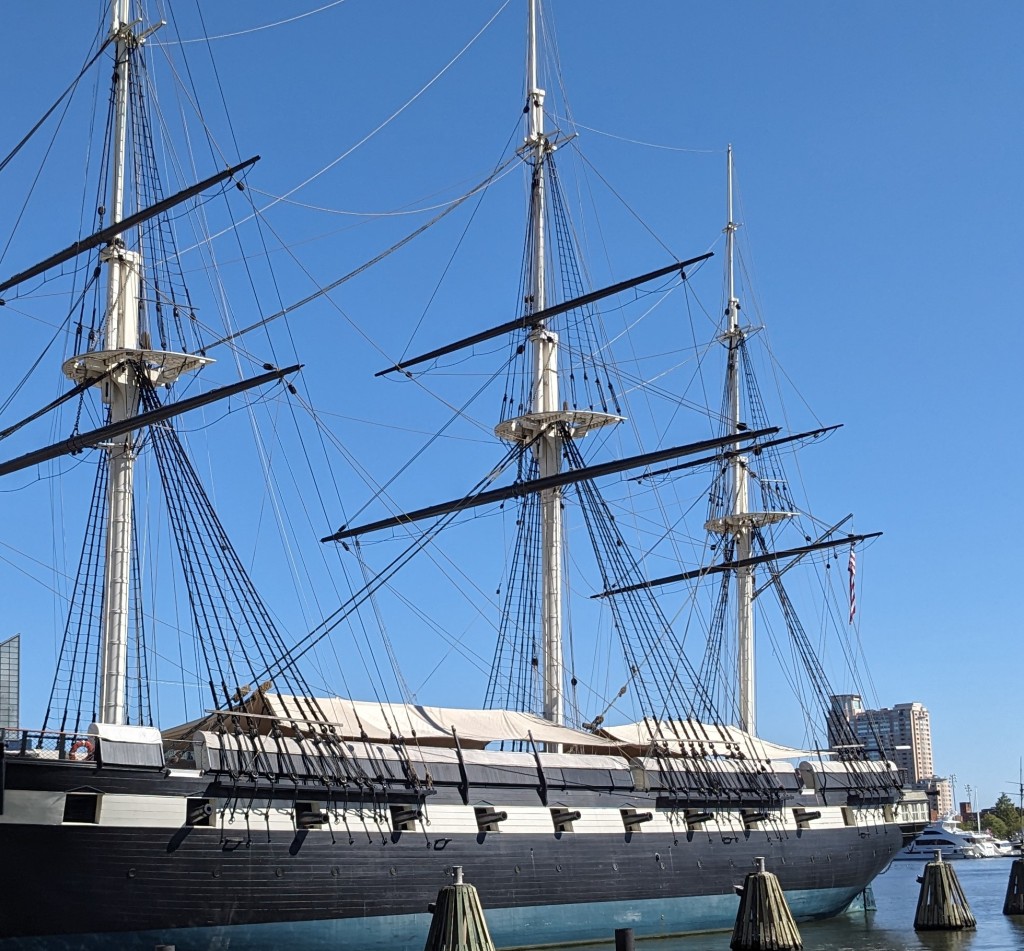Some books have reputations that precede them. The reputation may be for genius, for popularity, for challenging readers, for polarization, for profundity, or for sheer heft. Herman Melville’s Moby-Dick checks all of those boxes.
Moby-Dick used to be a staple of American high school English curricula. (It might still be, but given the trajectory of American education, I doubt it.) I was never tasked with reading Moby-Dick back when I was a student, but I nonetheless view it as a prototype of those books that have been consumed much more frequently as homework than for pleasure.
Although I avoided the novel for decades, there has always been something about Moby-Dick that intrigued me. I’ve heard so many critiques of it, ranging from glowing to befuddled, that it seemed like there had to be something interesting going on in those pages. After finally reading Moby-Dick last month, I now understand what all the fuss was about.
“Consider the subtleness of the sea; how its most dreaded creatures glide under water, unapparent for the most part, and treacherously hidden beneath the loveliest tints of azure. Consider also the devilish brilliance and beauty of many of its most remorseless tribes, as the dainty embellished shape of many species of sharks. Consider, once more, the universal cannibalism of the sea; all whose creatures prey upon each other, carrying on eternal war since the world began.
Consider all this; and then turn to this green, gentle, and most docile earth; consider them both, the sea and the land; and do you not find a strange analogy to something in yourself?”
– Ishmael

This post is not a critique or a summary of Moby-Dick. I’m not that ambitious! But the book did inspire some thoughts and responses in me that seemed worth discussing.
My main takeaway from the novel is that the aspects of it that seem to confound people the most — the digressive cutaways from the main narrative to muse about cetology, the ocean, philosophy, religion, and even (much to this upstate New Yorker’s surprise and delight) the Erie Canal — are what make the book a classic. The story of Ahab monomaniacally hunting the white whale is a good one, but if that’s all the book was, I don’t think many people would have been reading and thinking about Moby-Dick all these years after it was written.
“Talk not to me of blasphemy, man; I’d strike the sun if it insulted me.”
– Captain Ahab

If Ahab’s story is about the futility of raging against nature and tunnel vision, the rest of the book could be seen as an invitation to the reader to instead marvel at nature and to notice the small details on the periphery. The book is a meditation on any number of subjects; obsession and revenge for sure, but also issues like ecology, race, male friendship, 19th century capitalism, religion, and seafaring, to name just a few others.
“In this world, shipmates, sin that pays its way can travel freely and without a passport; whereas Virtue, if a pauper, is stopped at all frontiers.”
– Father Mapple
That meditative quality is, in my opinion, why the book endures. Moby-Dick invites you to think, and Melville’s musings, while thick with authorial flourish, also suggest a thoughtful, funny, ultimately likeable man. Reading Moby-Dick is like having a rambling, late-night philosophical conversation with a pleasantly talkative old friend.
“There is a wisdom that is woe; but there is a woe that is madness. And there is a Catskill eagle in some souls that can alike dive down into the blackest gorges, and soar out of them again and become invisible in the sunny spaces. And even if he for ever flies within the gorge, that gorge is in the mountains; so that even in his lowest swoop the mountain eagle is still higher than other birds upon the plain, even though they soar.”
– Ishmael

I went into Moby-Dick with the thought that finishing it would be an accomplishment. Now I feel like reading it once is just a beginning. The book contains so much, it would take multiple readings to fully appreciate it. I’m not sure when I’ll undertake that voyage again, and how many times I will do so, but this is a text I will return to.
“It is not down in any map; true places never are.”
– Ishmael

Leave a comment